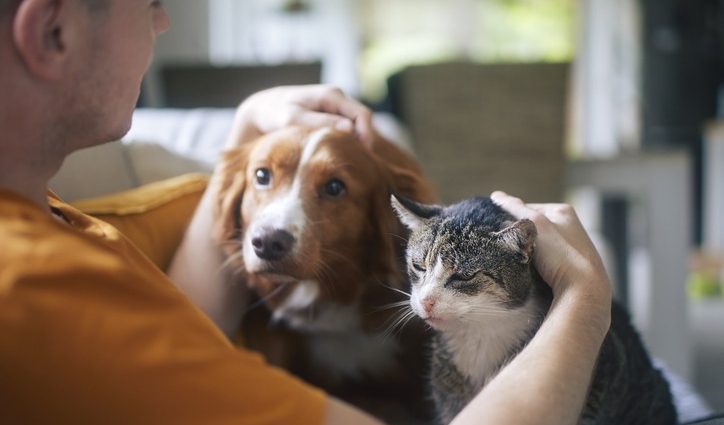As our pets age, their needs change, much like humans. Understanding why geriatric pets require specialized veterinary care is crucial for keeping them healthy and happy in their golden years. Let’s look into the reasons why a trip to the vet becomes more important as our furry friends age.
Why Do Geriatric Pets Need Specialized Veterinary Care?
Geriatric pets, much like elderly humans, experience a range of health issues that require more focused and specialized care. Here’s a closer look at the major reasons:
-
Chronic Health Conditions: Older pets are more susceptible to chronic conditions like arthritis, diabetes, and heart disease. Specialized veterinary care ensures these conditions are managed effectively, improving quality of life.
-
Regular Health Screenings: Geriatric pets need more frequent health check-ups to catch early signs of illness. Routine blood work, urine tests, and physical exams help in early detection and treatment.
-
Pain Management: Aging pets often suffer from pain due to joint issues or other ailments. Specialized care provides proper pain management, allowing them to live more comfortably.
-
Diet and Nutrition: Older pets have unique nutritional needs. Veterinary professionals can recommend diets tailored to support their aging bodies, addressing weight management and nutritional deficiencies.
Changes in Mobility
As pets get older, they often face mobility issues. Arthritis and other joint problems can make it difficult for them to move around. Specialized care can include joint supplements, physical therapy, or even surgical interventions if necessary. Regular check-ups will help monitor their mobility and adjust treatments as needed.
Behavioral Changes
Geriatric pets can exhibit changes in behavior, such as increased anxiety, confusion, or changes in sleep patterns. These changes can sometimes indicate underlying health issues that need to be addressed. Specialized veterinary care helps identify these issues early and manage them effectively. This is particularly important when caring for a geriatric cat and dog, as both can exhibit different symptoms and require varied approaches during their latter years.
Dental Health
Dental health often becomes a critical concern for older pets. Dental disease can lead to severe health problems if left untreated. Regular dental check-ups and cleanings are essential to prevent tooth decay, gum disease, and related health issues.
Weight Management
Maintaining a healthy weight is crucial for geriatric pets. Overweight pets are at a higher risk of developing conditions like diabetes, heart disease, and joint problems. Conversely, significant weight loss can also be a sign of underlying health issues. Specialized vets can provide dietary plans and exercise recommendations to help manage weight effectively.
Hormonal Changes
With aging, pets can experience hormonal imbalances such as hypothyroidism or Cushing’s disease. These conditions require specialized diagnostic tests and treatments that general pet care might miss.
Regular Monitoring and Adjustments
One of the benefits of specialized care for geriatric pets is regular monitoring. Vets can keep a close eye on any changes in your pet’s health and adjust treatments as needed. Regular blood tests, imaging, and other diagnostics become part of routine care, ensuring that your pet’s health is consistently checked.
If you want more detailed information on surgical procedures for your aging pet, you can view this page for further information about veterinary surgery to explore all available options. Proper surgical care can address many serious health issues and improve life quality for geriatric pets.
The Role of Specialized Equipment
Vets at specialized animal hospitals often have access to advanced diagnostic tools and treatments that general vets might not offer. These include ultrasound machines, advanced radiography, and even specialized surgical tools, which are crucial in diagnosing and treating geriatric pets accurately.
For instance, a vet lab in Torrance, CA may have the latest technology to provide exceptional care for your aging pet. Such labs offer precise diagnostics that are pivotal in detecting diseases early, allowing timely and effective treatments.
Support for Pet Owners
Specialized veterinary care encompasses not only treating pets but also supporting their owners. Veterinarians educate pet owners about their pets’ aging processes, guiding them to make informed choices regarding diet, exercise, and overall care. They offer valuable resources and practical tips to manage the daily challenges of owning a geriatric pet. This comprehensive support helps ensure that aging pets receive the best possible care while giving owners the confidence and knowledge to make their pets’ later years comfortable and happy, enhancing the overall pet-owner relationship.
Final Thoughts
Specialized veterinary care is vital for elderly pets because it caters to their unique health needs with tailored medical attention and consistent monitoring. This specialized approach manages chronic conditions, meets nutritional needs, and provides advanced diagnostics. By offering such targeted support, specialized care helps senior pets enjoy healthier, more comfortable lives in their later years. Investing in this care ensures your aging pet receives personalized attention, improving their overall quality of life as they age gracefully.

